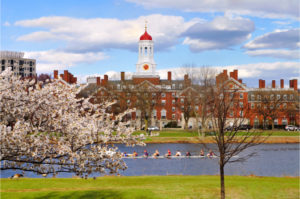In a Wall Street Journal editorial, R.R. Reno, editor of the Christian periodical, First Things, explains why he will no longer hire new employees who are graduates of Ivy League schools for the religious journal. Reno explains that the Ivy League students are “too woke” and “self-important.” At Young Research, we have never hired an Ivy, and do not invite them for interviews. Reno writes:
I’m not inclined to hire a graduate from one of America’s elite universities. That marks a change. A decade ago I relished the opportunity to employ talented graduates of Princeton, Yale, Harvard and the rest. Today? Not so much.
As a graduate of Haverford College, a fancy school outside Philadelphia, I took interest in the campus uproar there last fall. It concerned “antiblackness” and the “erasure of marginalized voices.” A student strike culminated in an all-college Zoom meeting for undergraduates. The college president and other administrators promised to “listen.” During the meeting, many students displayed a stunning combination of thin-skinned narcissism and naked aggression. The college administrators responded with self-abasing apologies.
Haverford is a progressive hothouse. If students can be traumatized by “insensitivity” on that leafy campus, then they’re unlikely to function as effective team members in an organization that has to deal with everyday realities. And in any event, I don’t want to hire someone who makes inflammatory accusations at the drop of a hat.
Student activists don’t represent the majority of students. But I find myself wondering about the silent acquiescence of most students. They allow themselves to be cowed by charges of racism and other sins. I sympathize. The atmosphere of intimidation in elite higher education is intense. But I don’t want to hire a person well-practiced in remaining silent when it costs something to speak up.
The traditional Islamic world exhibited a modicum of tolerance. Christians and Jews were dhimmi, allowed to exist, but on the condition that they accepted their subordinate role in society. While studying this arrangement, sociologists coined the term “dhimmitude,” which refers to the mentality of those who have internalized their second-class status.
Haverford, like Harvard and other top tier schools, graduates fine young people, no doubt many with well-adjusted personalities and sensible views of the world. But in the past decade, dhimmitude has become widespread. Normal kids at elite universities keep their heads down. Over the course of four years, this can become a subtle but real habit of obeisance, a condition of moral and spiritual surrender.
Some resist. They would seem ideal for my organization, which aims to speak for religious and social conservatives. But even this kind of graduate brings liabilities to the workplace. I’ve met recent Ivy grads with conservative convictions who manifest a form of posttraumatic stress disorder. Others have developed a habit of aggressive counterpunching that is no more appealing in a young employee than the ruthless accusations of the woke.
If you’re willing to fight for Main Street America, click here to sign up for my free weekly email.






